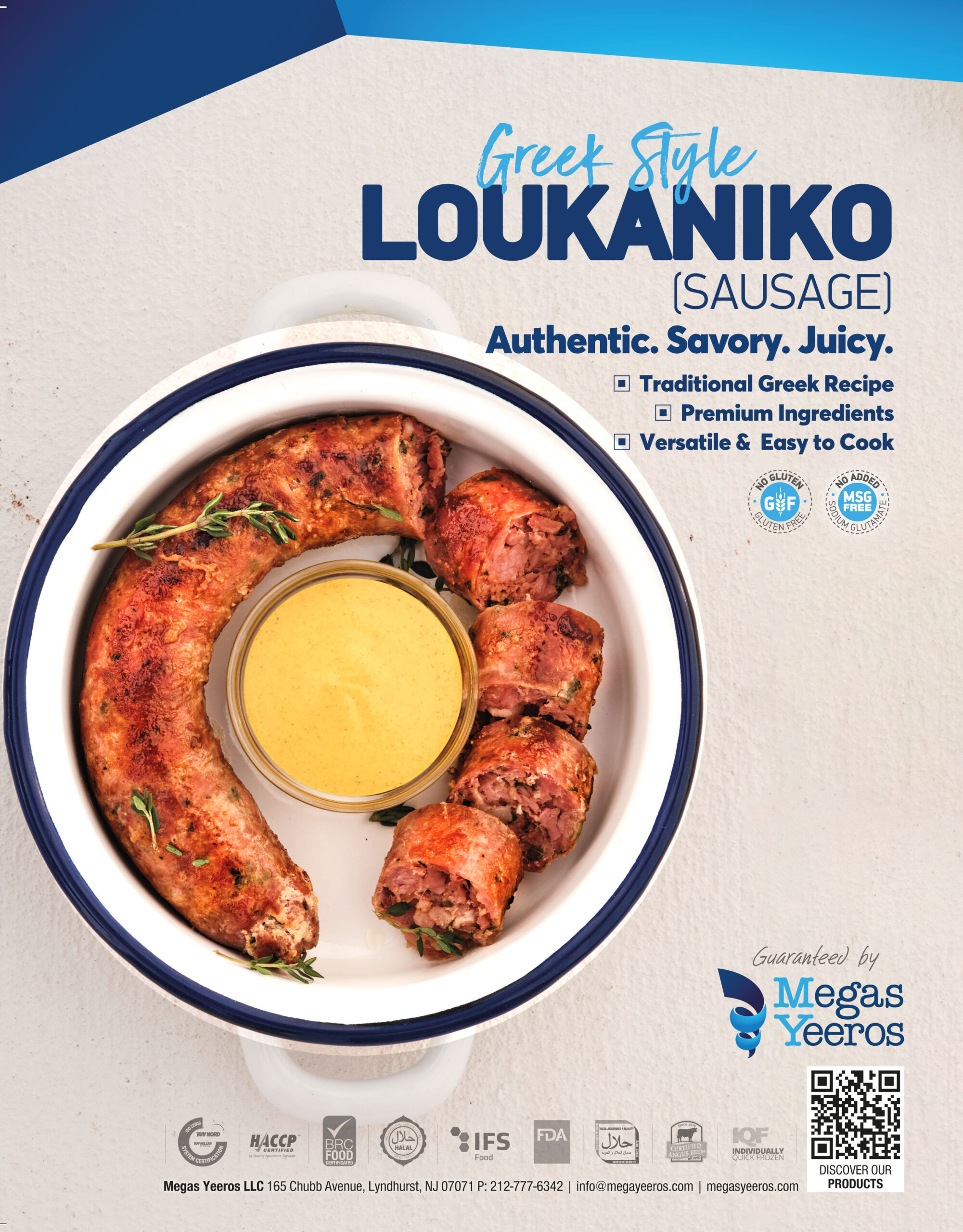Fast Casual Goes Greek
Posted by estiator at 10 October, at 07 : 14 AM Print
COVER STORY
GREEK CONCEPTS DRIVE HEALTHY QSR TRENDS
By Maria Benardis
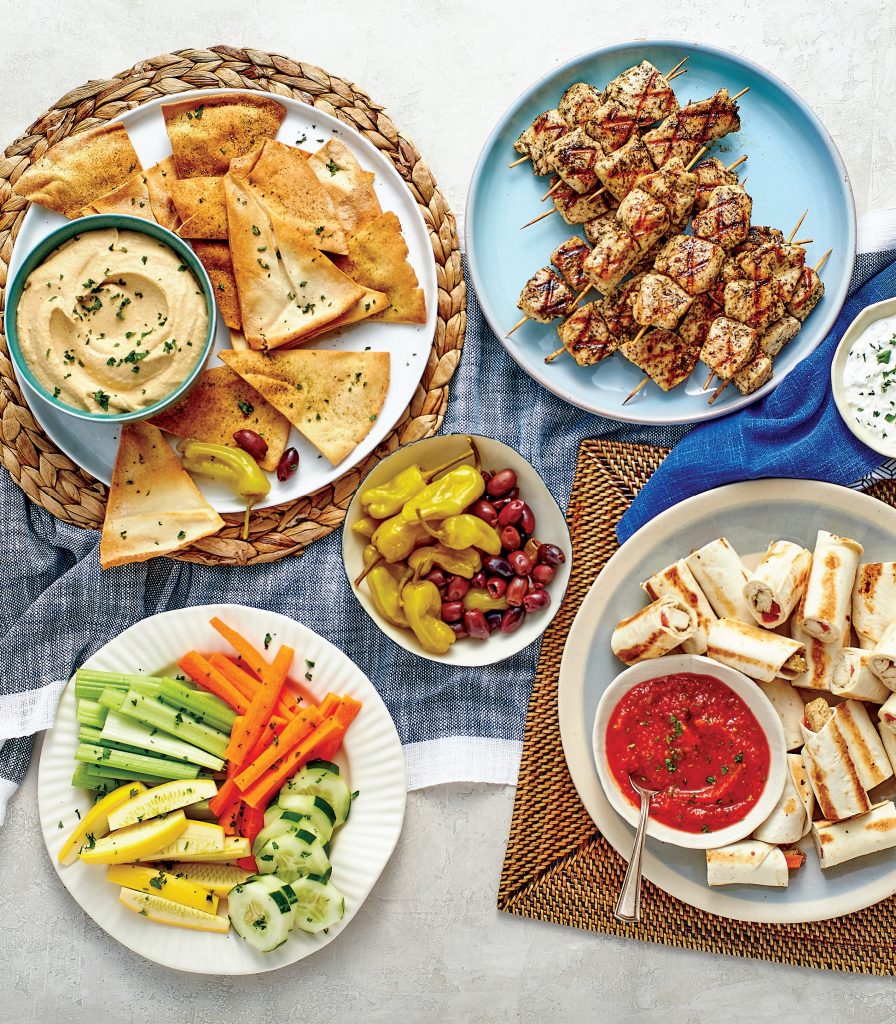
Americans are a people on the go, and, for the past 50 years, their need for fast food has grown, reflecting a fast-paced and often frantic lifestyle that leaves little time for cooking—pick up the kids from school, bring them to music lessons, back to the house to do homework, squeeze in a quick meal before racing back to school for play rehearsal, which finishes at 9:30 pm.
It’s no wonder, then, that people are increasingly choosing to eat fast food—after all, it’s quick, convenient, and relatively inexpensive. The problem, historically at least, is that fast food has most often been considered unhealthy. With the upsurge in Greek food-based fast casual/QSR (quick-service restaurant) concepts, the market now has healthier options. And customers are responding by embracing a growing number of brands that promote the Mediterranean diet.
The field, over the course of the past five to 10 years, has, in fact, become flooded with Greek concepts—some high-profile ones such as The Simple Greek (which came into being on the reality show The Profit when celebrity investor Mark Lemonis, born in Lebanon and adopted by Greek parents, reinvented a mom-and-pop gyro concept), as well as some small single-unit locations that have sprouted sister locations (many of which have been featured in our New Arrivals section each month). Some adopt the Chipotle model, allowing guests to build their pita wraps or bowls as they pass along a production line where they can choose ingredients, and others a more traditional model, in which dishes are composed to recipe. One thing is constant, however: Most are successful. From national brands such as Daphne’s to big-city, bigname concepts (such as Piggy Smalls in Chicago, opened by James Beard award winner and local celebrity chef Jimmy Bannos Jr.), Greek food that’s quick and price-accessible has arrived. Here are some of the standouts across the country.
GRK Fresh

PHILLIP MACRIS
GRK Fresh, with nine units in New York and Washington DC, as well as international units in Dubai and Qatar, was conceived when founder George Nikas felt the need to bring authentic high-quality Greek gyros to the United States, something he felt was absent from the market.
Phillip Macris, the concept’s Executive Director, outlines their simple mission: “To bring the Greek love of simply prepared foods using only the finest ingredients to the American market.”
“What sets us apart is the ingredients we use,” says Macris, who indicates that the meats used at GRK Fresh are locally sourced and of the highest quality. “Our gyros are handmade with layered strips of marinated meats. We import directly from Greece the items that make our foods so distinctive: 100% virgin olive oil, P.O.P. Greek feta, oregano from Mt. Taygetus, Greek sour cherry and rose petal sweet toppings for our yogurt.” The restaurant’s frozen yogurt, he adds, is made daily in-store using real strained Greek yogurt, with no added sugar.
At GRK Fresh, he says, “we love making people happy with great products while promoting our pride in Greece. The challenge lies in adapting to the American market in a way that stays true to our brand while resonating with the consumers here.”
When asked what their secret to success is, Macris shares that there is no secret, just “good food served by great people in a pleasant environment.”
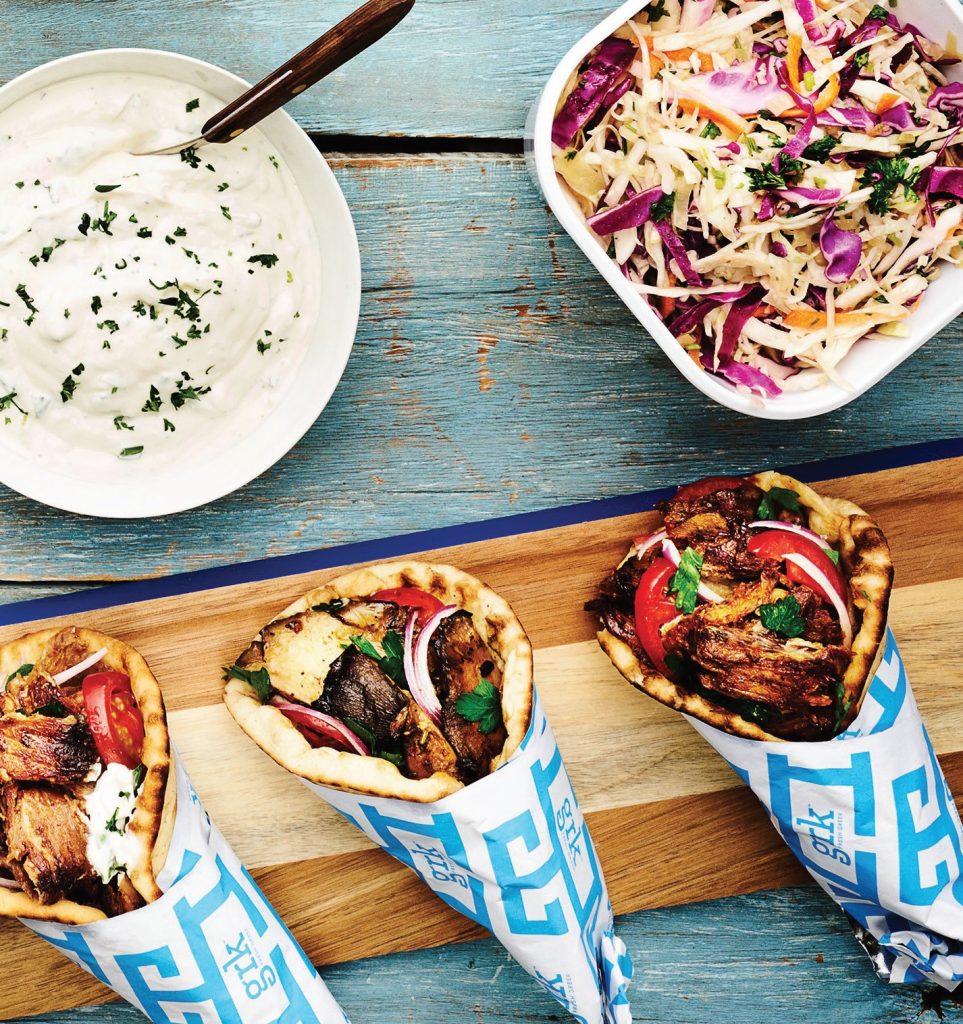
Hellenic Kouzina

ELIZABETH & LAMBROS ALEXOPOULOS
Since opening in 2012, in Mechanicsburg, just outside of Pennsylvania’s capital of Harrisburg, Hellenic Kouzina, owned by Lambros Alexopoulos and his wife, Elizabeth, has won a loyal following by offering authentic Greek cuisine in a casual, modern environment.
The idea for Hellenic Kouzina was Elizabeth’s. “She is a teacher by trade, and I was at a crossroads in my work life,” says Lambros. “I had been renting a space in downtown York, Pa., for 14 years, offering breakfast and lunch in the business district. After a lengthy search for a property to purchase, by God’s grace, we found what was a former drive-thru bank. Many close to me were reluctant, but my wife was supportive and encouraged me, making it clear, however, that she would only get involved if I made plans to open it as a Greek restaurant. The entire Greek community thought it was suicide. I was the talk of Central Pennsylvania—and not in a good way!”
The overall concept for Hellenic Kouzina, says Lambros, is to offer “made-to-order Greek food using the fastcasual service style.”
“Perhaps it’s an oxymoron, but it really works,” he says. “Guests order at a point of sale system much like they do at Panera Bread, and then seat themselves, or are seated by a host or hostess during peak hours. Once the order is entered, it is transmitted to the kitchen, which begins preparing the items to order.”
The menu at Hellenic Kouzina runs significantly deeper than most fast casuals, a reflection of the fact that the restaurant is always manned by Lambros, Elizabeth, or some of their older children (they have eight in total). In addition to street-food staples like souvlaki and gyro, diners can enjoy a whole grilled lavraki. Everything is made fresh, with Elizabeth contributing cooked specialties like moussaka and spanakopita as well as homemade desserts. Even the ice cream is made for them by a local creamery, with the most popular flavor being a vanilla with chunks of Elizabeth’s baklava mixed in.
“Our staff is trained to prepare and time the food,” says Lambros, “which is then assembled by our expeditors, who hand it off to food runners. Floor staff, in the meantime, tend to guests’ needs throughout their visit. Once at a table, guests can call on any staff member for additional attention or are welcome to return to the cashiers for anything more from our Greek pastry display case or a variety of specialty espresso coffee drinks prepared by our baristas.”
“Our mission is simple,” he adds. “The entire operation strives to delight guests consistently in a way that creates loyalty. Our mutual commitment to preparing and serving an honest plate of food and consistently following through with that good faith effort is what sets us apart.”
His overall philosophy is to “work to live and not live to work. Apply logic and reason to all things and make every effort to maintain a balance in life for the sake of healthy relationships between staff and your family.”
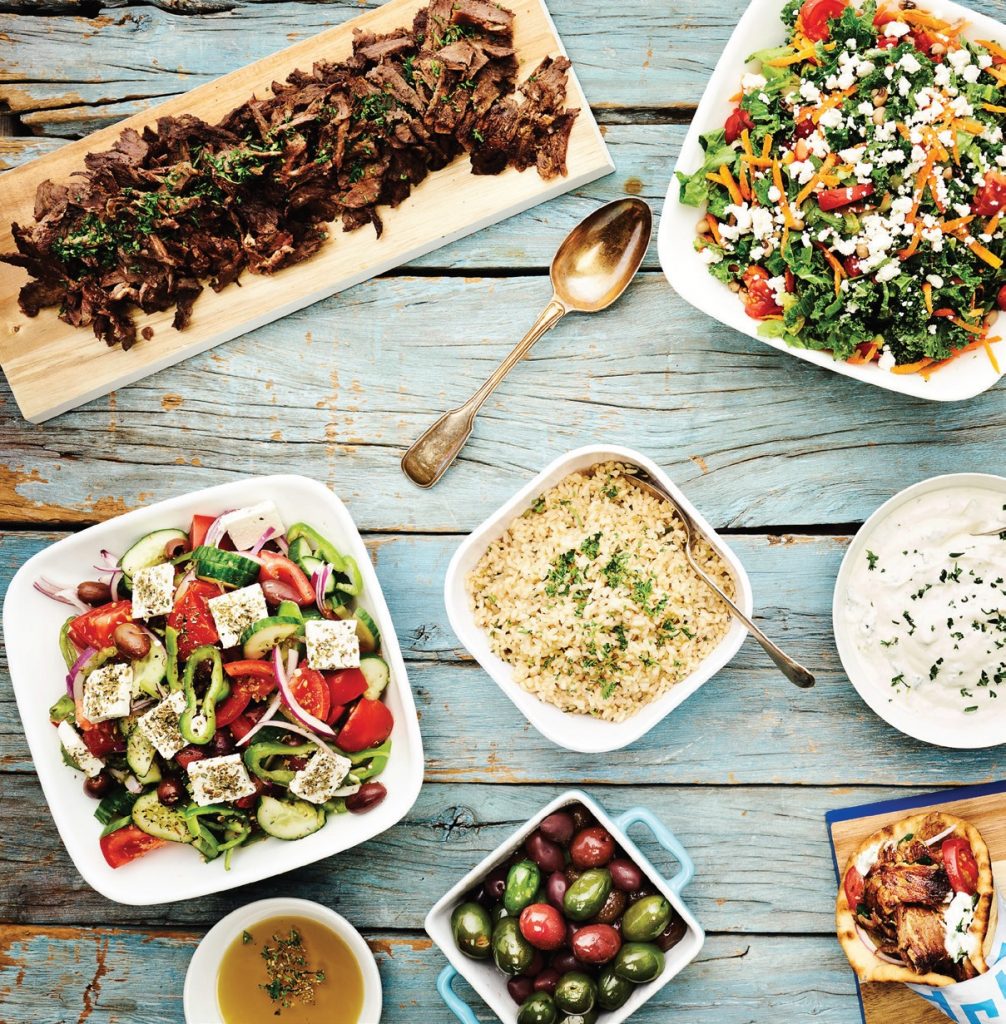
Taziki’s Mediterranean Café

KEITH RICHARDS
Travels through Greece were the inspiration for chef Keith Richards and his wife Amy to create Taziki’s Mediterranean Café in 1998, borrowing $50,000 against their house to open the concept’s first restaurant in Birmingham, Alabama.
“We had 76 people our first day, and we’ve never had less than that in 16 years,” says Richards. Taziki’s is a rapidly expanding brand, named one of America’s fastest-growing fast-casual restaurants by Inc. 5000. Having more than tripled in size since 2011, Taziki’s has over 90 restaurant locations, spanning across 17 states nationwide. Development plans include building the brand in existing markets, as well as entering into new areas across the country by 2023.
The essence of Taziki’s is defined by serving fresh ingredients and hand-cut meats daily. It takes pride in madefrom-scratch food that nourishes customers, and the artisanship that goes behind doing so without the use of fryers or microwaves.
MARKET OVERVIEW
Number of quick-service establishments 232,611 • Number of franchised fast-food establishments 190,649 Revenue of U.S. quick-service restaurant industry $256 billion • QSR with the highest brand value McDonald’s
America Hearts Fast Food
The U.S. is undeniably the founder of modern-day quick-service restaurants, with all 50 states home to scores of QSR concepts (in 2018, California accounted for the highest number, while the least populous state, Wyoming, accounted for the least).
Fast food, in fact, has been a big part of the American culture for decades, with QSRs becoming one of the most significant segments of the overall restaurant industry. The modern fast-food restaurant is an extension of the car hops and drive-ins of the 50s and 60s, with hundreds of concepts following the trail blazed by McDonald’s, which continues to be the standard-bearer for operational efficiency while leading in sales.
Now a major part of the American diet, fast food has, in recent years, turned the corner, opting for fresher, “cleaner” ingredients as concepts such as Panera and Chipotle have disrupted the traditional fat-rich, prepared-food model that was the norm for most of the segment’s life cycle. To keep pace, McDonald’s has adopted fresh beef for many of its signature burgers, while Burger King has tried to leapfrog its traditional foe by introducing a veganfriendly plant-based burger.
And while the U.S. fast-food landscape has been inundated by new concepts over the past decade, well-established brands are continuing to grow. If the market appears to be becoming saturated, household brands show no signs of slowing their growth, with several expanding their reach internationally.
The secret to a successful QSR, says Taziki’s founder, is to “set yourself a little apart from everyone else—different menu, food quality, and customer service.”
Richards says that building a successful multi-unit network is “about being nice, caring for others, and giving back. That is what people should do. Also, I value loyalty and building relationships with our employees. I would say my biggest passion is investing time and training into others to make an impact and encourage them to be the best version of themselves.”
The Gyro Shack

GUS ZAHARIOUDAKIS
The Gyro Shack was founded by Gus Zaharioudakis in 2009 in Boise, Idaho, after he and his son, Cameron, visited a small gyro shop on the island of Crete. While enjoying their meal, they were struck by a revelation: The model was something they could duplicate in their home city.
The Gyro Shack took six years to create and build into a thriving business, after which Gus sold the business to Seth Brink (who was serving as the company’s Vice President) and Doug Miller. The business had reached the point to which the concept needed to be scaled, he says. Brink and Miller, Gus felt, had the requisite experience with franchising and systematizing necessary to take his vision to the next level. Today the concept has multiple locations, with a regional presence predominantly in Idaho.
The Gyro Shack has a “simple quick-service approach that sets us apart in the Mediterranean category,” says Brink. “Our menu is based on the typical Chicago-style gyro, but Gus also took the recipe and elevated it. We build gyros with new and exciting toppings that create unique flavor profiles.”
Brink believes that a successful establishment must have great food, great service, and be cognizant of people’s time. “Time is the only non-recoverable asset we have,” he says. “Once it’s gone there is no way to get it back. Any establishment is failing if theyt don’t show concern for their patrons’ time.”
Brink’s personal philosophy is “Do, learn, grow.” “Before you can learn and grow, you must do,” he says. “Learn from what you do. Grow from what you learn. This philosophy is cyclical and constant as life is an eternal cycle of learning.”
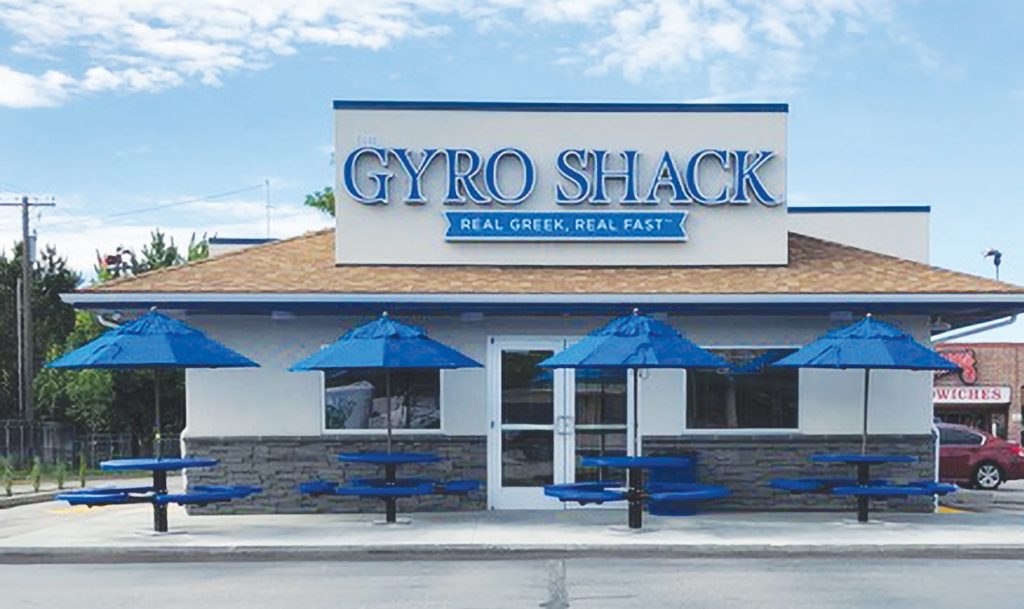
Number of employees in the QSR industry 3.78 million • Median hourly wage of fast-food cooks in the U.S. $10.74 (Report published by S. Lock, Aug 15, 2019 on STATISTA)








